Budgeting for capital expenditures (CAPEX) in the hotel industry can be challenging, especially when incorporating renovation and Property Improvement Plan (PIP) costs. But with careful planning, these investments can enhance your property’s value and guest satisfaction. This guide will walk you through the importance of budgeting for renovations and PIPs and how to effectively incorporate them into your CAPEX budget for 2025.
Understanding CAPEX in Hotels
CAPEX, or capital expenditures, refers to investments in your hotel’s physical assets that benefit you in the long run. These can range from upgrading HVAC systems to full-scale property renovations. CAPEX differs from operational expenses (OPEX), which cover daily costs, as it focuses on maintaining and increasing your hotel’s value over time.
- Investments in physical assets: Includes large-scale projects like new construction, major upgrades, and long-term maintenance. These investments are essential for maintaining the structural integrity and functionality of your hotel, ensuring it remains appealing to guests and compliant with regulations.
- Long-term benefits: Enhances property value, improves guest experience, and ensures compliance with brand standards. Well-planned CAPEX projects can lead to increased revenue, higher guest satisfaction, and a stronger market position.
- Differentiated from OPEX: CAPEX focuses on significant, long-term investments, while OPEX deals with day-to-day operational costs. Understanding this distinction is crucial for effective financial planning and ensuring the long-term success of your property.
Why Budget for Hotel Renovations and PIPs?
1. Stay Compliant with Brand Standards
Maintaining brand standards is essential for ensuring your franchise agreement remains intact. Property Improvement Plans (PIPs) are often mandatory for brand compliance, and neglecting these can jeopardize your franchise. Compliance with these standards is essential to retain the franchise license, which allows the hotel to benefit from the brand’s marketing power, loyalty programs, and operational support.
- Brand consistency: Keeps your hotel aligned with brand expectations and standards. Ensuring consistency helps maintain the trust and recognition associated with your brand, which is crucial for attracting and retaining guests.
- Franchise security: Ensures you remain in good standing with your brand. This security provides access to the franchisor’s resources, including marketing campaigns and booking systems.
- Non-compliance risks: Avoid potential penalties, loss of franchise rights, or a tarnished reputation. Non-compliance can lead to significant financial losses, legal issues, and damage to your hotel’s reputation in the market.
2. Enhance the Guest Experience
Guest expectations evolve, and regular renovations help meet these demands. A fresh and modern hotel can boost guest satisfaction, leading to repeat business and positive reviews.
- Modernization: Keeps your hotel appealing and up-to-date with current trends. This includes upgrading rooms with smart technology, enhancing common areas, and improving overall ambiance to meet the expectations of modern travelers.
- Guest satisfaction: Improved amenities and aesthetics lead to better guest experiences and reviews. Happy guests are more likely to leave positive feedback, which can enhance your hotel’s reputation and attract more business.
- Increased loyalty: Satisfied guests are more likely to return and recommend your hotel to others. Building guest loyalty through continuous improvements can lead to a steady stream of repeat customers and word-of-mouth referrals.
3. Stay Competitive in the Market
The hotel industry is competitive, and newer or recently renovated properties have the advantage. Regular updates help maintain your property’s relevance and attractiveness.
- Market relevance: Ensures your hotel stays attractive to guests in a competitive landscape. Staying ahead of market trends and guest preferences can help you differentiate your property from competitors.
- Higher occupancy rates: Modern properties can command higher room rates and maintain better occupancy levels. By offering updated amenities and aesthetics, you can justify premium pricing and increase your revenue.
- Competitive edge: Renovated hotels stand out, attracting more guests and driving revenue. A well-executed renovation can position your hotel as a top choice in your market, leading to increased bookings and profitability.
4. Protect Your Investment
Your hotel is a significant investment, and regular maintenance and upgrades protect its value. A well-maintained property will fetch a higher price if you decide to sell.
- Value preservation: Regular updates and maintenance protect and enhance your hotel’s market value. This ensures that your property remains an attractive asset, whether for continued operation or future sale.
- Increased property value: Renovated hotels are more appealing to buyers, should you decide to sell. Potential buyers are more likely to invest in a property that has been well-maintained and updated, leading to a higher selling price.
- Long-term ROI: Protects your investment and ensures continuous returns over time. By strategically investing in your property, you can maximize its value and ensure a steady flow of income over the years.
5. Reduce Long-Term Costs
Investing in renovations isn’t just about aesthetics; it’s also about cost savings. Energy-efficient upgrades can lower utility bills, and regular maintenance prevents costly repairs.
- Cost savings: Energy-efficient upgrades reduce utility bills, freeing up funds for other investments. Investing in technologies like LED lighting, energy-efficient HVAC systems, and water-saving fixtures can lead to significant savings over time.
- Maintenance prevention: Regular maintenance avoids expensive repairs and extends the life of your hotel’s assets. Proactively addressing issues can prevent them from becoming major, costly problems in the future.
- Sustainability benefits: Environmentally friendly upgrades can also attract eco-conscious travelers, expanding your market reach. Implementing green practices not only reduces costs but also enhances your brand’s appeal to a growing segment of environmentally aware guests.
How to Incorporate Renovations and PIPs into Your CAPEX Budget
1. Prioritize Your Projects
Identify which projects are most critical, focusing on legal compliance, brand-mandated PIPs, and guest satisfaction.
- Project prioritization: Rank projects based on urgency, legal requirements, and potential ROI. Prioritizing projects ensures that the most critical needs are addressed first, maximizing the impact of your investments.
- Brand & Safety Compliance first: Brand, Legal and safety standards should be top priorities. Ensuring compliance with your franchise, local regulations and safety standards protects your hotel from losing your flag, legal issues and potential fines
- Guest-focused upgrades: Invest in projects that enhance the guest experience and drive revenue. By focusing on guest satisfaction, you can directly impact your hotel’s performance and profitability.
2. Create a Long-Term Plan
A long-term CAPEX plan allows you to anticipate major expenses and spread them out to avoid financial strain.
- 5-10 year outlook: Plan for the long term to ensure financial stability and project continuity. A well-structured plan provides a roadmap for future investments, ensuring that your hotel remains competitive and financially sound.
- Annual revenue allocation: Set aside 9-10% of your annual revenue for CAPEX to cover ongoing maintenance and upgrades. Regularly allocating funds for CAPEX ensures that you have the resources needed for essential projects without disrupting your cash flow.
- Flexibility in planning: Be prepared to adjust the plan as market conditions and guest expectations change. A flexible approach allows you to adapt to new opportunities or challenges, ensuring that your CAPEX plan remains relevant and effective.
3. Explore Financing Options
Lenders often require hotels to set aside revenue for CAPEX, ensuring funds are available for major projects. Look into rebates or grants for energy-efficient upgrades to offset costs.
- Escrow accounts: Maintain accounts specifically for CAPEX to ensure funds are available when needed. Setting aside dedicated funds for CAPEX ensures that you are financially prepared for large-scale projects.
- Financing options: Explore loans, grants, and rebates, particularly for energy-efficient projects. Leveraging available financing options can help you manage the costs of renovations and PIPs without straining your budget.
- Cost-offset strategies: Use available financial tools to reduce the burden of major expenditures. By taking advantage of rebates, tax incentives, and other financial tools, you can reduce the overall cost of your projects.
4. Track Your Progress
Monitoring project progress and its impact on hotel performance is crucial. Tools like ENERGY STAR Portfolio Manager can help you track energy usage and maximize your investments.
- Performance tracking: Regularly assess the impact of renovations on guest satisfaction, occupancy rates, and revenue. Tracking the results of your investments ensures that you are meeting your goals and can make informed decisions about future projects.
- Benchmarking tools: Use tools to track energy usage and ROI on upgrades. These tools provide valuable insights into the effectiveness of your energy efficiency initiatives, helping you optimize your investments.
- Adjustments as needed: Stay flexible and make necessary changes to keep your CAPEX plan on track. Regularly reviewing and adjusting your plan ensures that it remains aligned with your hotel’s goals and market conditions.
Final Thoughts
Strategically planning and budgeting for CAPEX investments are crucial to keeping your hotel competitive, compliant, and appealing to guests. By understanding the importance of renovations and PIPs and incorporating them into your CAPEX budget, you can ensure your property remains a top choice for travelers while protecting your investment for years to come. If you need guidance, companies like Amerail Systems specialize in helping hotel owners navigate these challenges, offering tailored solutions to maximize your ROI on renovations and PIPs.

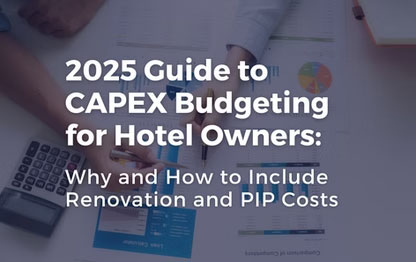
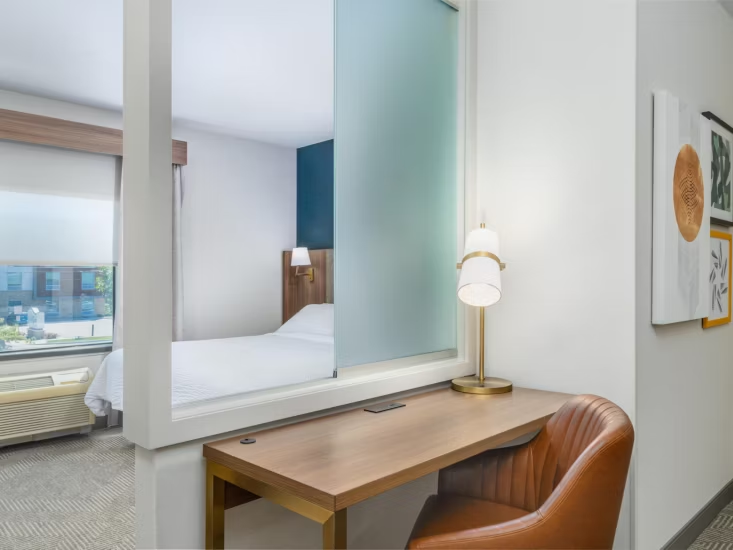
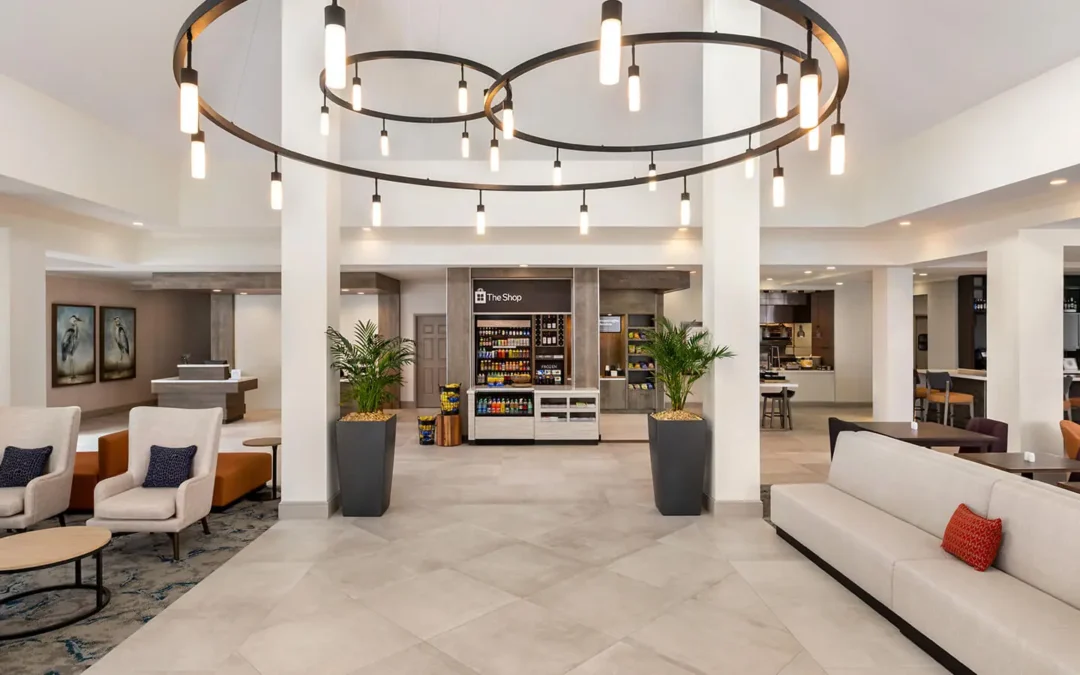
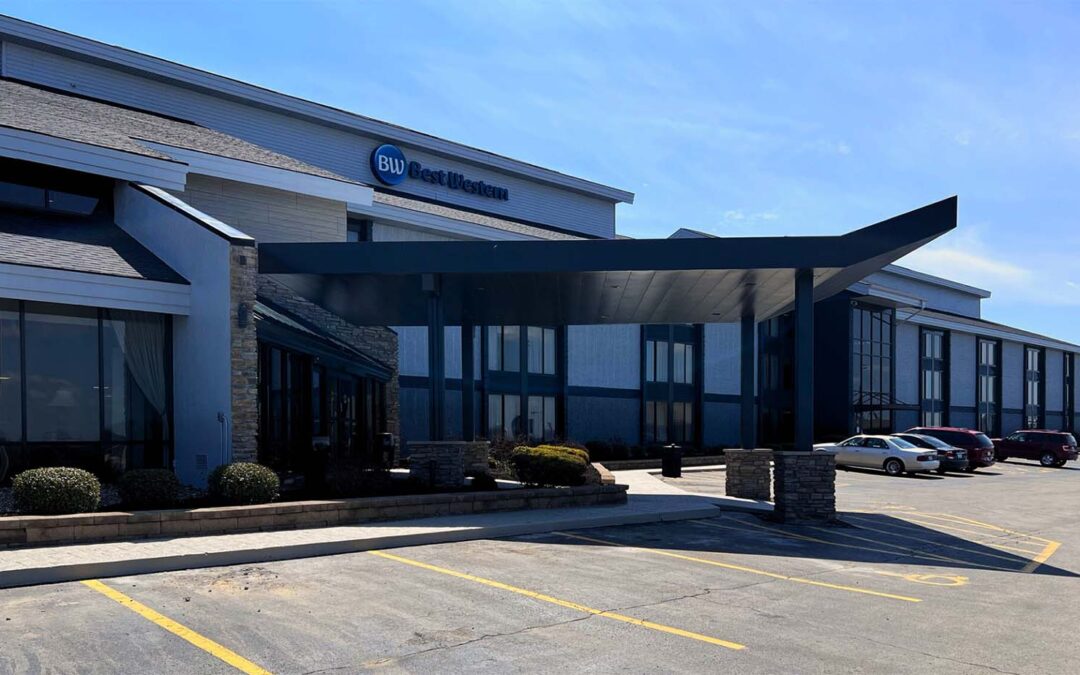
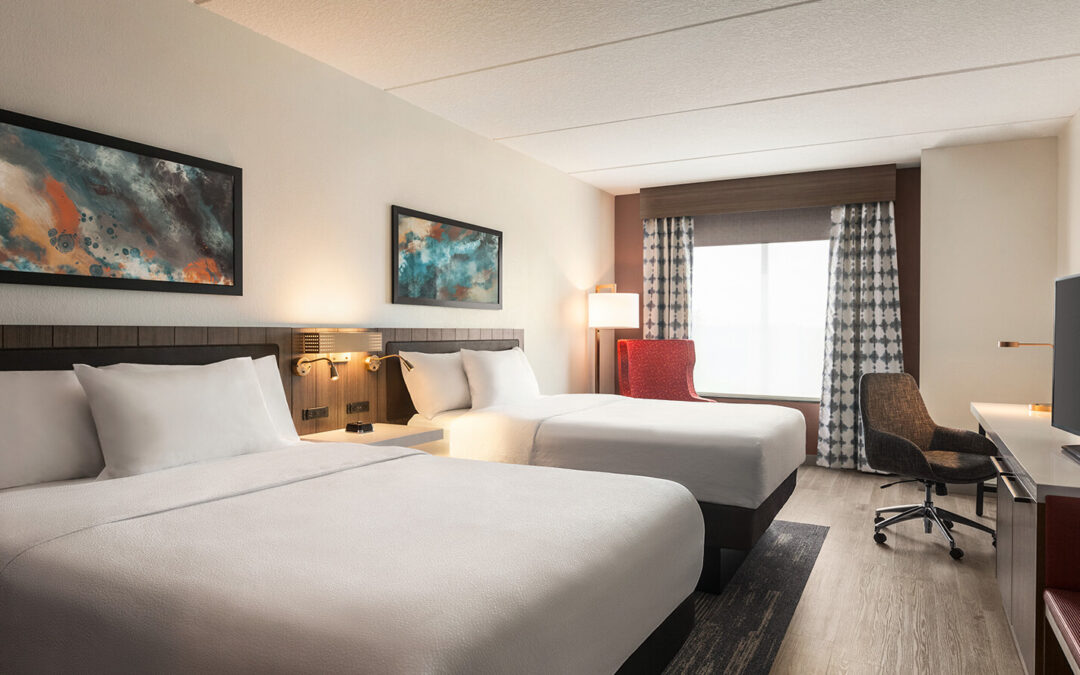
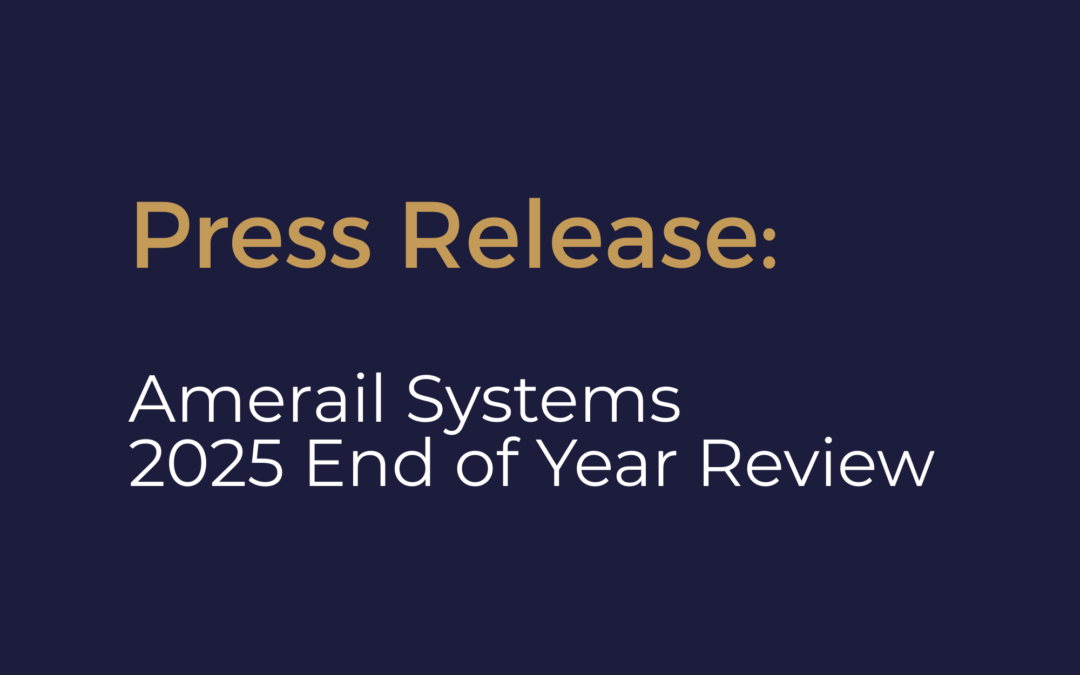
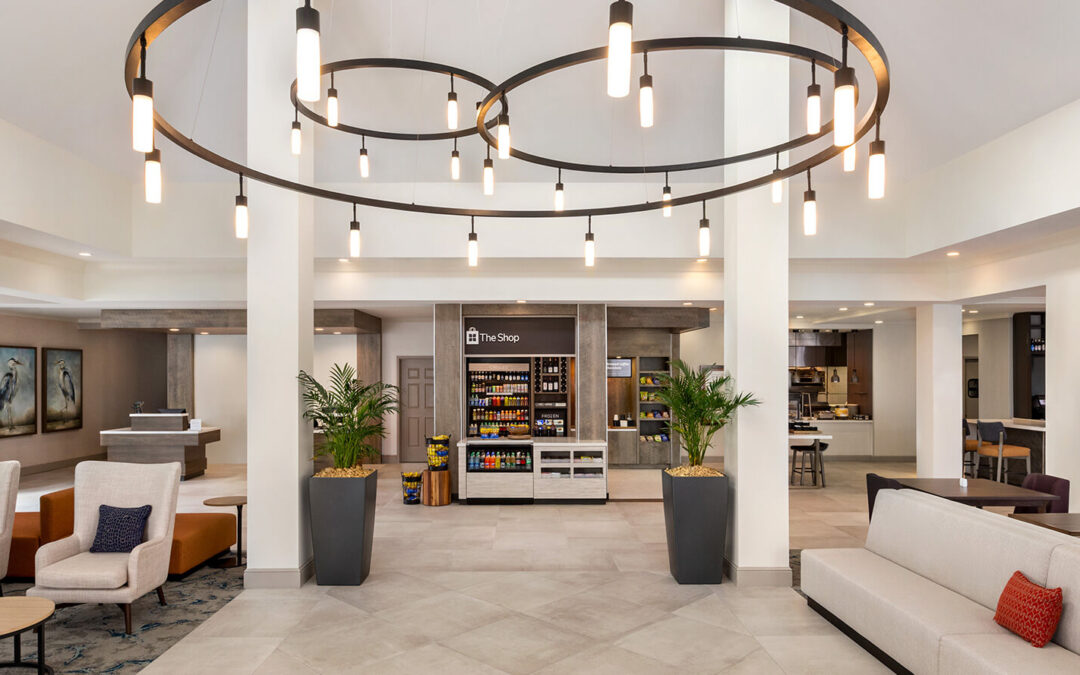
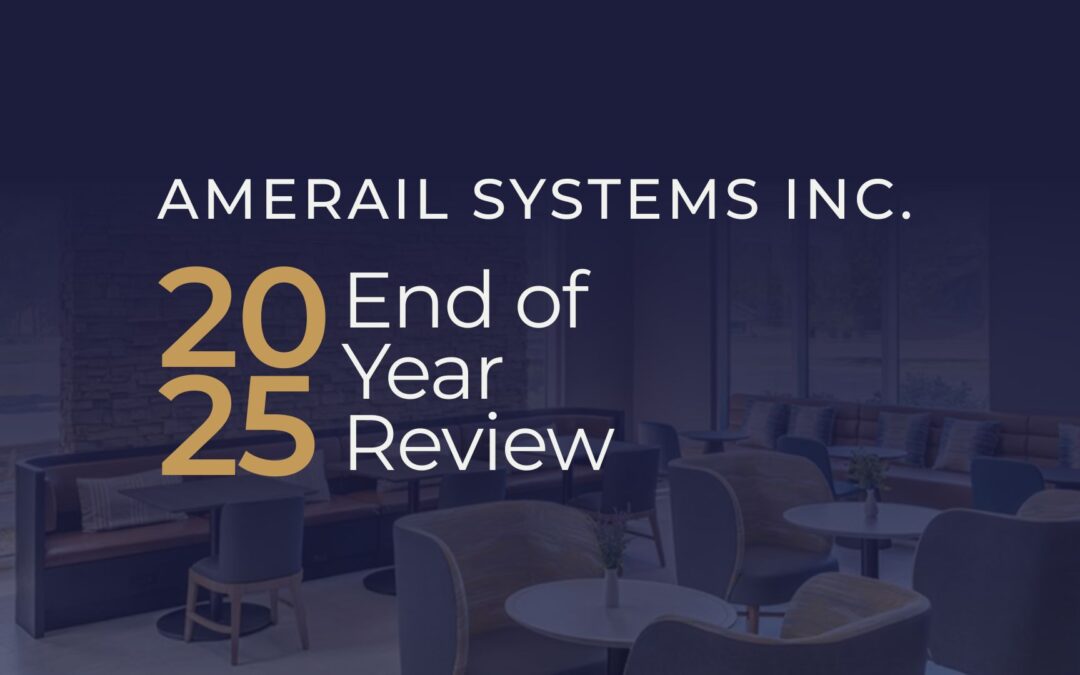
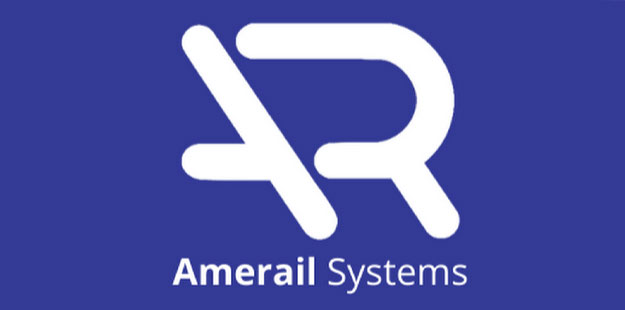
0 Comments